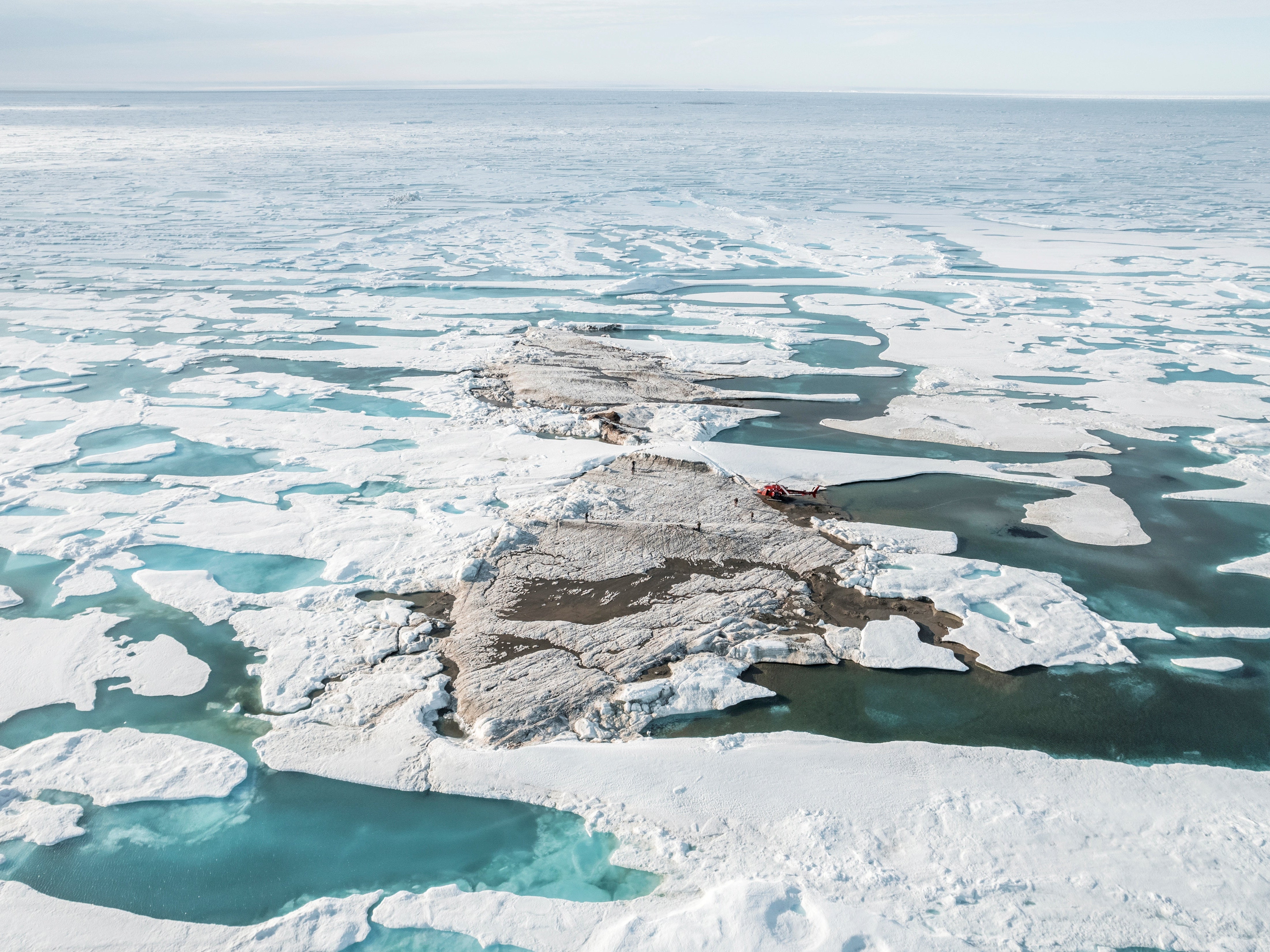Scientists discover ‘world’s northernmost island’ off coast of Greenland
Such discoveries ‘could have a wide international significance’ in emerging battle for control of Arctic

Your support helps us to tell the story
From reproductive rights to climate change to Big Tech, The Independent is on the ground when the story is developing. Whether it's investigating the financials of Elon Musk's pro-Trump PAC or producing our latest documentary, 'The A Word', which shines a light on the American women fighting for reproductive rights, we know how important it is to parse out the facts from the messaging.
At such a critical moment in US history, we need reporters on the ground. Your donation allows us to keep sending journalists to speak to both sides of the story.
The Independent is trusted by Americans across the entire political spectrum. And unlike many other quality news outlets, we choose not to lock Americans out of our reporting and analysis with paywalls. We believe quality journalism should be available to everyone, paid for by those who can afford it.
Your support makes all the difference.Scientists believe they have discovered the world’s northernmost island during an expedition off the coast of Greenland – by mistake.
“It was not our intention to discover a new island,” said Morten Rasch, a polar explorer and head of the facility. “We just went there to collect samples.”
The scientists initially thought they had arrived at Oodaaq, an island discovered by a Danish survey team in 1978. Only later, when checking the exact location, they realised they had visited another island 780 metres northwest which was revealed by shifting pack ice.
“Everybody was happy that we found what we thought was Oodaaq island,” said Swiss entrepreneur Christiane Leister, creator of the Leister Foundation that financed the expedition.
“It's a bit like explorers in the past, who thought they'd landed in a certain place but actually found a totally different place.”
While it is veteran explorer Dennis Schmitt who has notably driven the discovery of various new islands in recent decades, finding one nearby most recently in 2007, the search also carries potentially significant geopolitical implications – with a battle over control, fishing rights and shipping routes in the Arctic brewing between nations such as the US, Russia, China, Denmark and Norway.
The small island, measuring roughly 30 metres across and a peak of about three metres, consists of seabed mud, soil and rock left behind by moving glaciers – but scientists said the island's appearance was not a direct consequence of global warming, which has been shrinking Greenland’s ice sheet.
Rene Forsberg, professor and head of geodynamics at Denmark's National Space Institute, said the area north of Greenland has some of the thickest polar sea ice in the world, but that it was now two to three metres thick, compared with 4 metres when he first visited as part of the expedition that discovered Oodaaq in 1978.
Meanwhile, experts have suggested that such new discoveries could impact the territorial claims set to intensify as the impact of climate change grows.
“This little island could have a wide international significance,” Stefan Talmon, professor of international law at Oxford University, told Reuters of Mr Schmitt’s discovery in 2007. “With the ice melting, more and more of these islands could emerge and play a role in maritime delimitations.”
But any hope of extending territorial claims in the Arctic depends on whether the latest discovery is in fact an island or a bank that may disappear again. To be considered an island, it must remain above sea level at high tide.
“It meets the criteria of an island,” Mr Forsberg said. “This is currently the world's northernmost land.”
But Mr Forsberg, an advisor to the Danish government, said it was unlikely to change Denmark's territorial claim north of Greenland.
“These small islands come and go,” he said.
The team said they would recommend calling it “Qeqertaq Avannarleq”, which means “the northernmost island” in Greenlandic.
Additional reporting by Reuters
Join our commenting forum
Join thought-provoking conversations, follow other Independent readers and see their replies
Comments